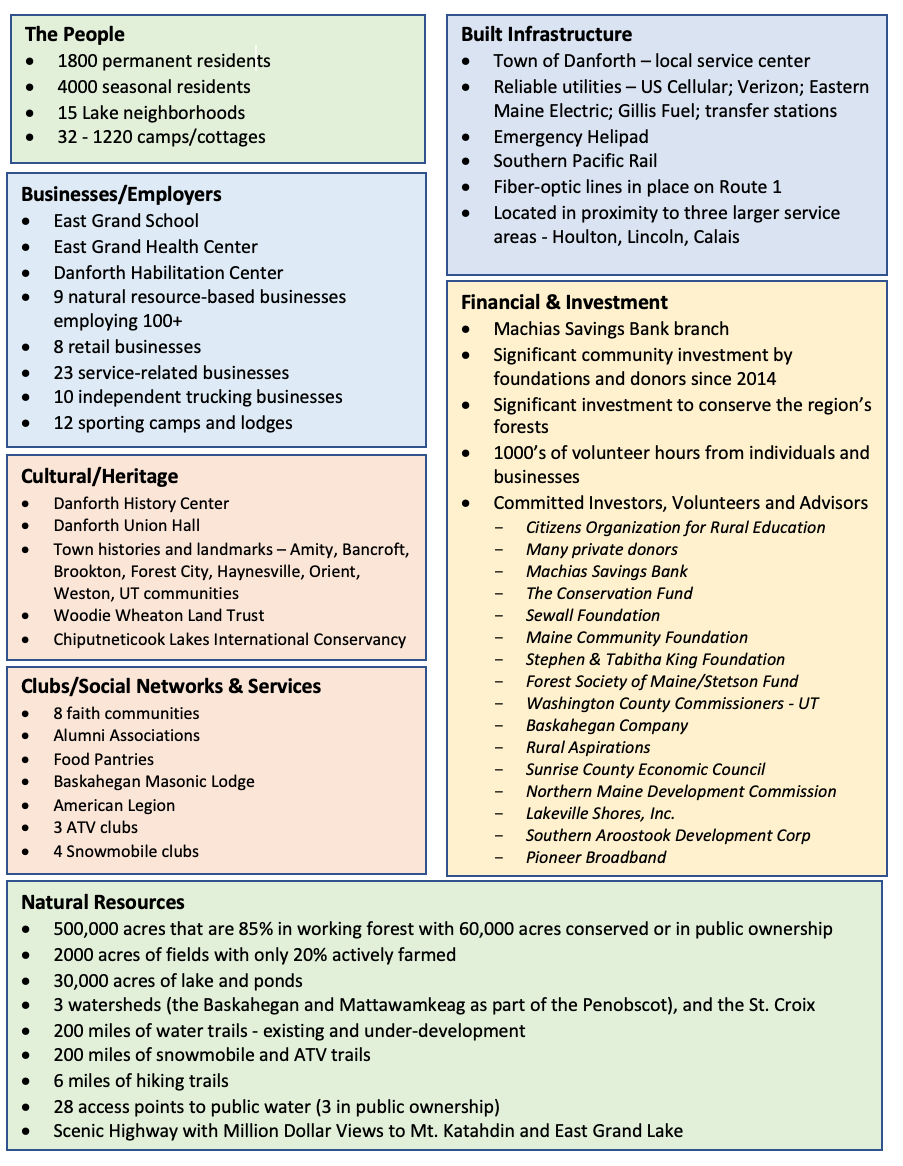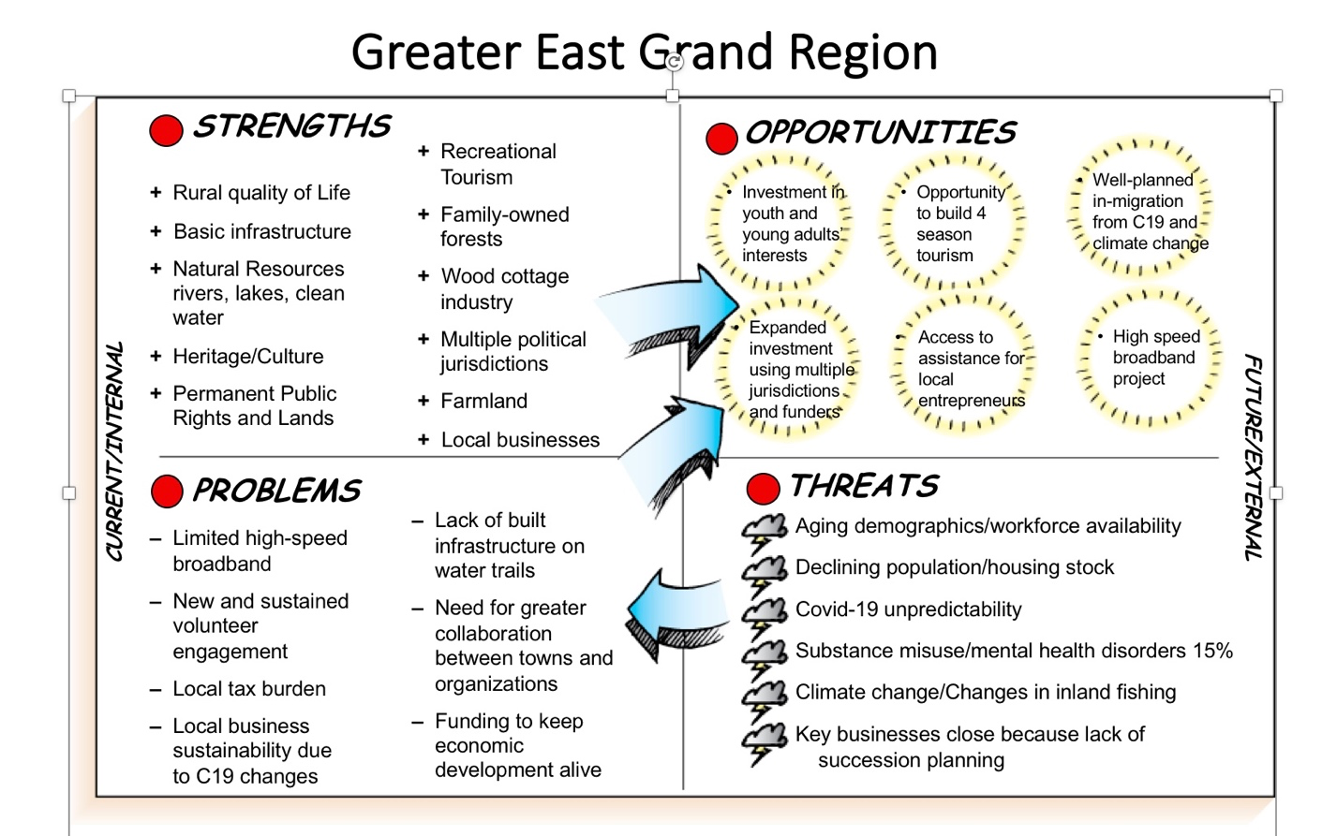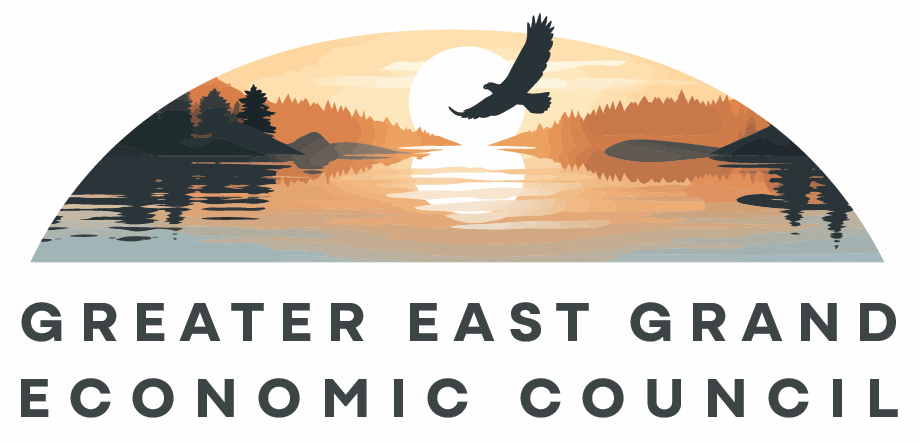Background
The Region's Assets
Challenges
Assumptions
Opportunities
The Region's Assets

Challenges
There are four major issues that are significant challenges over the next ten years.
- The region is remote. This is a region that requires a destination brand and spirit to attract new visitors and residents. Many seasonal visitors have historical family connections. The Town of Danforth has basic services but is not an active “destination” community with tourist amenities and attractions.
- The region is sparsely populated. This may have advantages during a pandemic, but undermines the need for a robust, reliable workforce for existing businesses, and a strong volunteer network to carry forward the economic and community development priorities.
- The region’s demographics are aging. This trend also impacts workforce availability and volunteer engagement. Most importantly, it underscores the requirement to invest in East Grand School and all the youth and young adults in the region. Providing opportunities to learn more about local careers, providing the means to apprentice, and investing in their entrepreneurial aspirations is essential to maintain their interest in becoming long-term residents.
- The natural resource-based economy is declining. The value chain for lumber and other timber-based products continues to fluctuate. New product ideas are a priority in the Maine’s economic development planning but if and how forestry businesses can remain viable remains an open question.
Assumptions
Seven planning assumptions emerged from the asset mapping process and informed the draft economic development plan.
- The Danforth service center, its essential services, and the major employers that make a livable community possible must be sustained. This includes East Grand School, East Grand Health Center, Machias Savings Bank, the US Post Office, Danforth Habilitation Center, the natural resources businesses that employ over 100 people, and the businesses that provide food, fuel and other retail services.
- Independent business owners, sole proprietors, and lodge/camp owners need public and private support to stay in business and reposition their business models during an economy in significant transition.
- Youth and young adults require resources, encouragement and mentoring to be able to build on their career interests and believe that there is a sustainable future for them in their community.
- The region has the potential to become a destination for individuals seeking to relocate from urban areas in response to climate change impacts and the appeal of a more affordable, rural lifestyle.
- To attract new residents – families, young adults, recent retirees – investment properties, housing, health care, education and high-speed internet services are required.
- To attract new seasonal visitors, the region requires a reinforcement of its “destination identity” and a coordinated promotion plan that highlights the beauty, remoteness, and amenities expected by an urban market.
- Demonstrated coordination and collaboration across organizations and communities in the region will build confidence and continuity, and in turn, demonstrate to residents, investors and funders that the Greater East Grand Region has a path forward to sustainability and growth.
Opportunities

